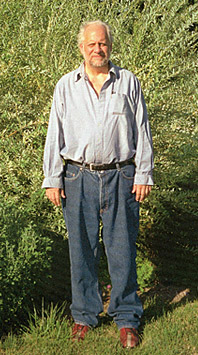The Lawrence Welk Bowling Shirt
I played high school varsity football, joining surprisingly but indifferently in my freshman year, because on the one hand I was an unusually large kid, and on the other I found boarding school a distracting environment. I couldn’t get into the “Kill, Kill, Kill!” spirit. I was too green, the only freshman on the team.But Coach Casey was quiet and charismatic, with an angelic wife and a daughter with a pony. We respected and emulated him. We set ourselves to reach his level. Only time separated us—not values or attitudes. He was like us, only older and wiser. There was continuity.
There was also no screwing around, on or off the field. Here was education: one mistake and you were out. But failures rarely occurred. “Slackers”, as we know them, did not exist yet. “Mouthing off” was unimaginable. We embodied the coach’s authority, obeyed his orders and followed his suggestions without thinking. That’s how football was played in those days. We were like a close-knit family.
Today, coaches are administrative managers of a separate world of boys at various levels of a star system. The “big game” is the new boss, and teams are like small corporations. There is a lot of discussion—it’s unbelievable. High school players focus on careers rather than relationships with one another. The result is a separation of player from coach, and a great difference in personality and character between them. They aren’t “like” each other anymore. Coach is “them”, players are “us”. This alienation permeates many parts of today’s world. Shared values have been lost.
I thought about this while sitting in a recent business meeting with clients—vendors of services on the West Coast. Used to be that, regardless of age, rank or sex, everyone was on the same team. We spoke the same language, had similar education and training, knew the same business particulars, and even wore the same kind of clothing.
Across from me sat a young woman who knew almost nothing of the situation, had no training for the subject at hand, and wore a T-shirt with the words “Unlucky Rabbit” across the top and a picture of a rabbit with a bandaged foot down the front. Her hair was uncombed and stuck in place with a small cord on one side.
I thought of the first time I saw a “message shirt”. It was in the sixties when I worked at a soda counter in a bowling alley. Middle-aged people in satiny shirts with “Acme Petroleum Pin Kings” and “Elliott Press Lane Wizards” in fancy cursive across their backs. That was it. Maybe you could get away with wearing a sweatshirt with your Dad’s state university logo on it to grade school, but only if Mom didn’t catch you at the door and make you change into a regular shirt. The young woman in the cartoon T-shirt seemed timid and depressed and made no contribution to the meeting. Her incompetence and inhibition was displayed in her clothing. Twenty five years ago, a woman at her level would have been well-dressed, well prepared and knowledgeable, if not articulate.
Then, since nothing was going on at the meeting, I thought about the music that had battered my eardrums throughout dinner at a yuppie restaurant the night before. I remembered the Sunday afternoons, 30 years ago, when I’d visit my folks back in Illinois. After sports and “60 Minutes”, we’d watch “The Lawrence Welk Show”, a popular variety program of bland but pleasant song and dance music, including fancy accordion solos. My folks and I would listen and talk, slowly playing out the string of a Sunday evening. After television, Dad and I would finish up with a small glass of Scotch, chatting about the business facing us Monday, while Mom would read the rest of the newspaper.
